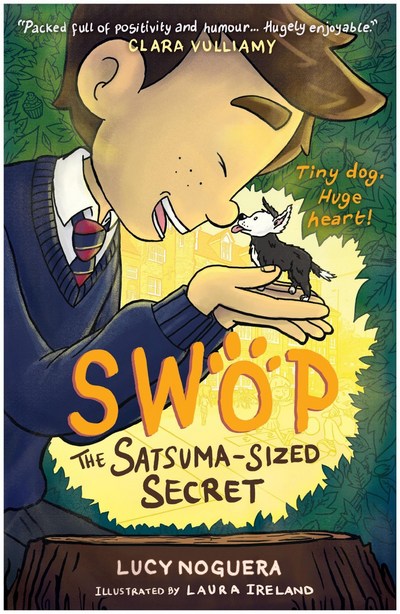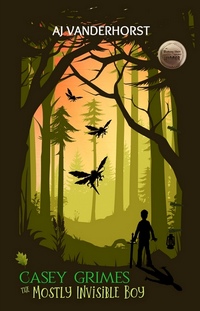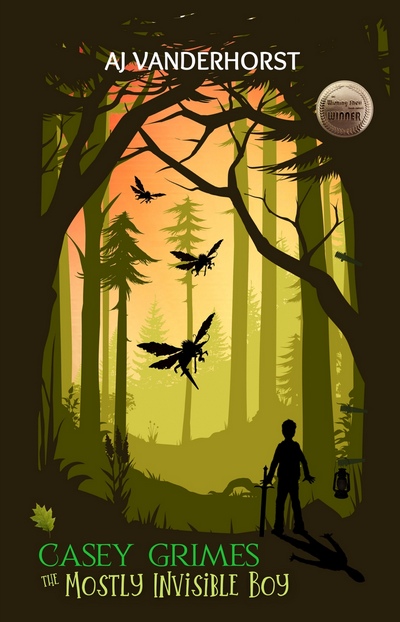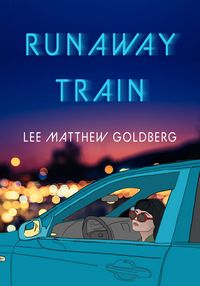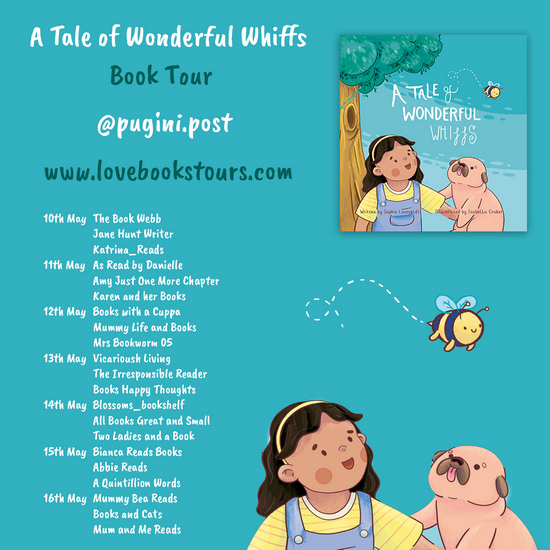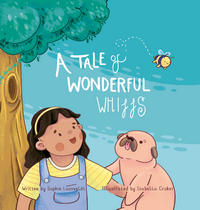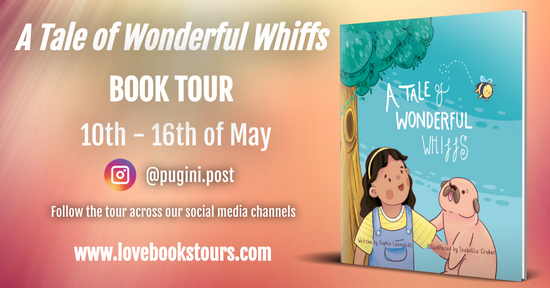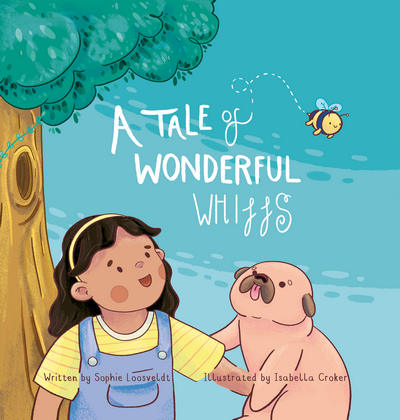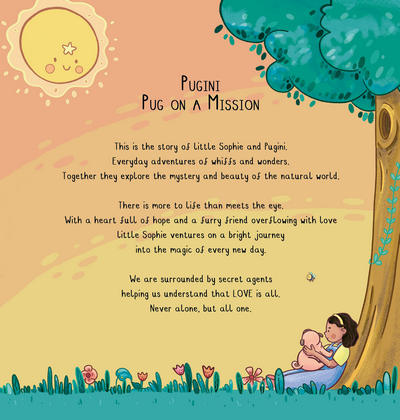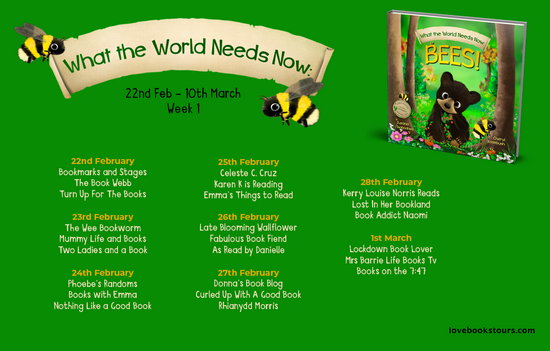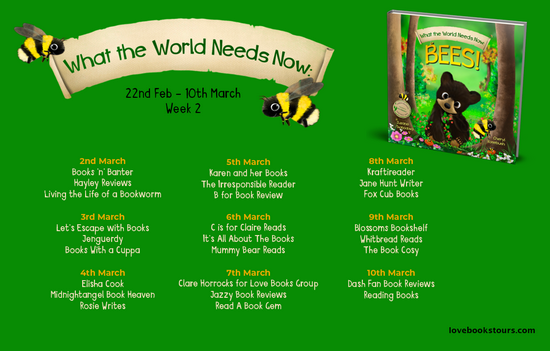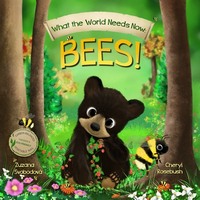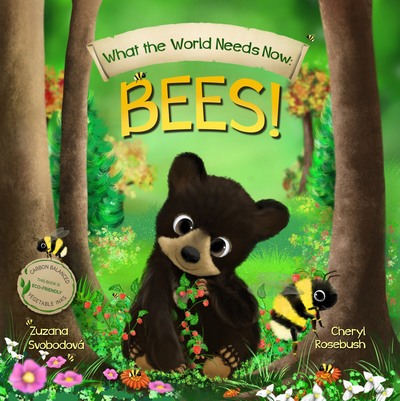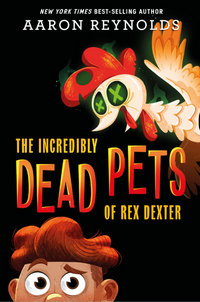For the first part of this Tour Stop, we looked at the novel, The Mostly Invisible Boy from a distance, now it’s time to dive in.
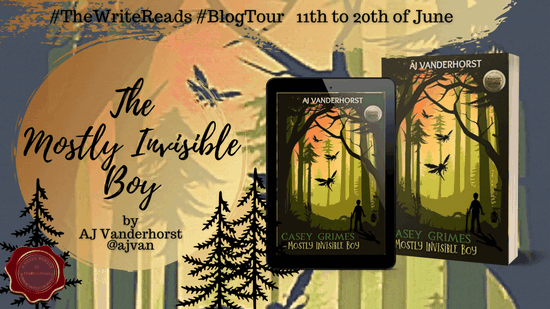

This is one of those posts, I’m afraid, that I end up sounding less positive about than I am. So let me start off with this: I liked The Mostly Invisible Boy, I think your average Middle Grade Fantasy reader will, too. Sure, I have some issues with it, but that just means its in the same company as works by Brandon Mull, Christopher Healy, and Rick Riordan.
What’s The Mostly Invisible Boy About?
What if you find yourself in a magic kingdom only to find out that no one there believes in magic? That’s just what happens to Casey Grimes.
But I’m getting ahead of myself. Casey Grimes is an eleven-year-old who transferred into a new Middle School at the beginning of the year. As far as Casey can tell, no one at the school is aware that he exists—no one seems to see him for more than a few seconds at a time, and even people he’s spent a lot of time with don’t remember him for longer than a few seconds. To say this is getting to him would be an understatement.
When he gets home from the last day of school he learns that his parents are leaving for a surprise vacation, leaving Casey and his sister, Gloria, with a babysitter for a week. This is just not what he needs after the worst last day of school he can imagine, so he heads out to the woods behind his house to blow off some steam by climbing trees. He comes across an impossibly large oak tree he’d never noticed before.
Driven by its uniqueness, novelty, and a desire for something that he probably can’t name, Casey climbs the tree and makes several discoveries that change his life. Casey and Gloria will be brought into a new, heightened reality, a world of magic, monsters, honor, adventure, and danger. A world where he is seen, he is noticed—and he finds purpose.
Now, he just has to make sure the two of them survive it.
The Worldbuilding
The Sylvan Woods is a world hidden from regular mortals (they’re dubbed “Civilians”—not as fun to say as “Muggles,” but it gets the message across a bit more clearly). The residents of the Sylvan Woods serve as a defense against the creatures who would destroy humanity, they hold back that which overrun the world.
There’s a history of conflict, of triumphs, victories, of developing prejudices—and a loss of the sense of wonder and magic behind the duties. Many Sylvans resent Civilians, looking upon them with disdain. They’re soft and useless, taking the sacrifices of the Sylvans for granted (never realizing or even considering the possibility that we just don’t know they exist).
Worse, many of these Sylvans don’t believe in magic. Thinking it’s all stuff of fiction, legend—Dark Age belief. This is very understandable, but when the greatest defenses of the Sylvan are magical…well, that doesn’t bode well for their efforts, does it?
Some dynamite worldbuilding and it should be a great world to explore in the volumes to come.
Ms. Jones
The Grimes parents leave the children in the care of “an extremely well-qualified traveling babysitter” (her words), who are part of the vacation package the parents receive. She is the character I think we really needed more of to strengthen the book (although, more of every adult would’ve been helpful). She’s some sort of strange hybrid of the P. L. Travers version of Mary Poppins, Mrs. Piggle-Wiggle, and Professor Savant. She blithely accepts whatever weirdness that Casey and Gloria talk about, talks about even stranger things than them, has some agenda that has nothing to do with babysitting, and seems to know more about what’s going on with the Grimes family than any of the Grimes do.
And every time she’s mentioned or is in a scene, whatever she is doing, saying, or not doing or saying is more interesting than anything that Casey or Gloria is up to. Not because they’re uninteresting, it’s just she’s that interesting. A little more of her would’ve helped—too much more and she’d have overshadowed the whole thing (which wouldn’t necessarily be bad, it’d just be a different kind of book).
My Issues
My problems with the book boil down to this—too often it feels undercooked. All the flavor is there, all the ingredients are present—it just was taken out of the oven too soon.
It’s clear that Vanderhorst has a well-thought-out plan, he knows what the world is about, he has a story he’s wanting to tell—and that he thinks he told. He hits all the plot points, shows us the various monsters and geographic elements, but doesn’t give the reader everything we need to understand the importance of them.
It’s hard to explain without giving you a couple of pages and going through them line by line. But, to use an example most people reading this should get—it’s as if we see Harry and Hagrid on Diagon Alley, going into Ollivanders, Flourish and Blotts, and the Gringotts and maybe see what they get, without knowing where Diagon Alley is, how you get to it, who shops there and why. The essentials are there—we see the coins, the books, and the wand—we may even see some of the odd characters around there. But without all the context, details, and flavors that The Sorcerer’s/Philosopher’s Stone gives us, it’s not as cool (for lack of a better word to sum up the experience).
This happens several times throughout the book—including the last chapter. That felt incredibly rushed—like it was the highlight reel of a major sporting event, which might be okay for a casual viewer, but not for a fan who wants to understand what happened during the game/match.
None of this ever ruins the novel, it’s still enjoyable, you always know what happens. But…it certainly dampens my enthusiasm.
So, what did I think about The Mostly Invisible Boy?
It was…pretty okay. I liked the book and had plenty of fun watching Casey and Gloria learn about the Sylvan Woods and get into (and out of) scrapes. I thought many of the other children they encountered were interesting and can see how the relationships will develop over the coming books into the kind of thing that makes addicts of Middle Grade Fantasy readers. I also appreciated all the adult characters—not something that can be said for almost every MG Fantasy I can think of.
My issues keep me from being effusive with praise and restrain my enthusiasm about this book—but I do think it’s something you should pick up for your favorite member of the target audience. Particularly, I think, if they’re fans of Mull’s Fablehaven/Dragonwatch series.
This post contains an affiliate link. If you purchase from it, I will get a small commission at no additional cost to you. As always, opinions are my own.

My thanks to The Write Reads for the invitation to participate in this tour and the materials (including the novel) they provided.






